Time Passes
It seems a long time ago since October 1st,
since my last swim.
It is now November 20th, and the world has changed. However, we tend to forget that the only permanent thing in life is change…as my friend* Stanley Lewis, the Montreal sculptor, would say.
*See appendix.
It is now November 20th, and the world has changed. However, we tend to forget that the only permanent thing in life is change…as my friend* Stanley Lewis, the Montreal sculptor, would say.
*See appendix.
Change
For us Montrealers, Leonard Cohen died. It is at times
like these we mourn together, an old friend. He was our Main Mascot. Our
legend. I was sent this poetic photo of his house on
Marianne, Montreal, by my daughter, Alyosha:
I met him once, in 2006. After Stanley Lewis’
death, we celebrated with a show on his life as artist, in the Lambi Club, on
the Boulevard St. Laurent*. Cohen had been asked to attend, as he was in town, and an old friend of Stanley. He didn’t show up. 12pm,
we were packing things away, and I went down stairs to have a breather. A small
rain fell, a squeegee punk* lent against the lamppost on the corner of St. Laurent
and Mount Royal while an oddly rainbow haze fell from the midnight lamp light.
It was very filmic . . . then I saw him walking slowly towards me, arms behind
his back. I asked him if he would come and join us, and he said very quietly,
“No need to come up, there is no need.” He was doing his remembering outside,
on a quiet wet pavement on October 13th 2006. It was soulful.
Leonard Cohen took my hand, bowed slightly, and bade me good night. And went on slowly down the road.
Leonard Cohen took my hand, bowed slightly, and bade me good night. And went on slowly down the road.
Here in China, although we are isolated from many
things, within two hours of his death being made public a WeChat bio - our
equivalent to Facebook - was made of his songs and shared around the country. If China didn’t know him before, 1 billion people
know him now.
We follow the seasons as time passes, and now it is
almost winter.
Fish hang up to dry on the beach, and the old men’s club still gathers on the beach for their ritual swim and gym.
Fish hang up to dry on the beach, and the old men’s club still gathers on the beach for their ritual swim and gym.
The Monkey Dancer finds the slither sun, and a mere
weekend now to perform his martial arts for the local tourists who have almost disappeared.
The world is calm on the beach. It settles down for
the oncoming winter months, into hibernation. I walk more quickly to school
these days. I do not have much time to sit and reflect. I have so much work. Yet
I still look for special signs as I walk. Today’s theme is hearts:
There are two months left now before school ends. Deadlines
are underlined in red, and the anguish students go through when trying to
choose a subject for their graduation film is real. No film, no pass next year.
The Lightstar awards happened last month. One of my
students, Ti-luian - Anna - was shortlisted for her touching work on a Buddhist
minority tribe and their monthly horse race. She will graduate next May and
wants to go on to Canada. Sadly, her work cannot go far here. Documentary is
still the underdog, and certainly not theatrically distributed. It would be
hard for her to work in the industry uniquely in documentary, unless reporting for
CTTV.
Anna and I talk a lot about this. I understand her
dilemma and desire to leave China to experience something else. This is as natural as me being in China, from
Canada, to experience something else. However, I remind her how vast the subject
matter is here, and how much access we have. We do not need clearance papers,
or signatures. Yes is yes, and no means no. Simple as that.
People are not camera-shy, they open easily and
mostly happily to the camera. Faces light up wide and doors open into people’s
worlds in a way we would not be able to enter so quickly in the West, unless of
course we were Kim Longinotto.* So, it is up to us to find the way to present our documentaries. That is the issue, not to
find the subjects - subject matter is omnipresent.
I was invited to give a conference a few weeks ago
at Jinan University of the Arts on docu-fiction and mixed media with one of our
professors. We illustrated our talk with films we love in this genre, and our
own work. It was exciting for the students as Direct Cinema is still the norm in
the documentary classes, and what Chinese are more familiar with. However, new
forms are encouraged and cross cultural exchanges more and more on the rise.
Steps are being made, small but sure
and solid steps, to explore new ways of seeing and expressing, as the current IDOCS forum from Beijing showed. * (November
12 – 17th 2016.)
My own work
Finally I met the director of Qingdao’s municipal
archives with the purpose of finding film footage for my work on my mother’s
story, Anne Patricia, who was born in Shanghai, 1930, and was brought up by her
Amah. Her family fled due to the encroaching Sino-Japanese war; while her father remained in China. He left for Vietnam in the early 50s, where he died. Mr. Koln, the director, asked us to come by for tea and a chat to see how he could help us.
Being in his office was an archive in itself, and
like stepping back in time, from the video camera they still sometimes use to
the editing machines.
We viewed German memorandums, letters from lovers,
Chinese workers’ pay slips, early films of Qingdao being built, maps, the creation of the world famous Tsingtao beer,* and the big dream the Germans had to make a home away from home, and did well till the Japanese came along.
During tea he asked us if we were interested to
join him in his quest to archive Qingdao’s German quarter.
Mr. Koln has been documenting Huangdao Lu, the old
quarter in Qingdao, where the demolition of homes has been going on for years.
These are German buildings from the early 1900s where the Chinese elite would
have lived. Due to the fact no one knows really knows how to repair in the
European style, and lack of care, they have since become slums. Many of the
people will be relocated.
He proposed we help him interview people in their
homes before demolition or renovation takes place. Eventually to use for an
interactive website of the old city. This poses four advantages:
- A gateway to understand Qingdao's history.
- A great way to practice Chinese.
- An innovative and useful way for the students to do research and gain experience interviewing and finding a story.
- The chance for us all to learn how to use the complicated Chinese archival system.
The residents who live in the labyrinthine homes
are divided in their feelings he told us. Some want to stay; and this is
understandable because, despite disrepair, these are their homes, their
identity - past, present and possible future. While others are quite happy to
leave for a more modern and comfortable life with a nice hand-out from the
government.
Mr. Koln wants to preserve the memories, and use
those memories alongside the website to persuade the municipal government of the
importance of preservation in the wake of relocation. Jinan old railway station*
is an example.
We were taken into the old yard of one community. This was once the best in Qingdao. Much had already been emptied. Walking into empty homes where people had left only fleeting moments of their lives - furniture, letters, discarded toys - pushed me to take photos, before these domestic imprints could be scraped up and burnt. These photos are the only witness to a lifetime's existence.
Suddenly the power of the camera and Mr. Koln’s
idea becomes important and as fundamental as when I was in Montreal and a student
at Concordia’s Film School, documenting my neighborhood the Boulevard
St. Laurent*, joining
other painters, animators, writers and photographers in our need
to remember and keep those alive. Today, the Boulevard has changed and all the Main Mascots have died. But many of us captured the legacy in our way, preserving a place, a time and its people through the lens.
Mr Koln explained that as archivists they have to
preserve their history, yet cannot romanticize it. If you still have to use the
outside toilets, do not have proper running water, are old, sick and disabled,
maybe it is better to go into a new home where the bathroom is inside and water
runs freely.
I will go next week with Anna to hunt out some
characters and their stories. The plan is once a week for the next year or so.
(I have also been shown footage of Shanghai, 1931: street scenes, domestic scenes, business and some smart Russian ladies about town, to which I will have access.)
BFAMCMC
Beijing Film Academy, Multi Creative Media College,
Qingdao Campus.
Our film school is divided into 7 disciplines:
Direction & Drama, Cinematography & Photography, Management,
Performance, Sound, Literature, Animation.
Each department works separately, teaching a 4-year
specialty. Ying and I are in the cinematography department and
teach documentary to first year, third year and graduate students.
The four years are nose to the ground, intense,
dedicated, and the incredible savvy technophile teachers teach at an incredible
speed; their knowledge gobbled up by the students. However, like grammar
lessons and rote learning, the students are only allowed to make small,
ambitious steps in the first three years, and some subject matter is contentious.
In
the fourth year, all that has been learnt is put into practice. Our students’ camera work by then is mostly extraordinarily
beautiful; however their creative ideas lack. As cinematography is their craft,
much emphasis is placed on them not only mastering the camera, but being able to walk
away and work as a camera person immediately, no matter what the job, from
wedding videos, to assistants on full-length features, to commercials and TV.
Four departments - Direction, Sound,
Cinematography, and Literature - join together for the final graduation show
with 6 to 8 fiction films. Film pundits come in to headhunt the most talented.
Cinematographers are revered at school, and there is
a common joke that the directing department has words but no eyes. Fiction is still preferred above documentary
for the glamour, the money, and the fact that fiction gets to the big screen
and rules the TV with numerous soaps and TV dramas. The less aggressive
student, the lone wolf or poetical thinker, usually chooses documentary.
Student life
Anna lives her life via Chinese social media, like
most Chinese young people. She is thinking of opening an online company - these
are popping up like mushrooms - selling short films, one minute long, targeting
youth and youth issues. The whole of China is connected to their phones, an
extension of their arms and hands, where a terrible snobbism exists on the type
of phone you have - and what access you have.
I let Anna navigate for me. Cellphones are thicket
deep with layer upon layer of sites. They open, they crash, then fall, then resurface.
If you don’t have a phone in China, you basically cannot exist. It is your
life. The cell is also a platform to be who you are. You can break out a little,
break loose a little, and break wilder a little more than in public, or in a
group, or with friends.
We walk and watch the waves break. The sea has changed
in such a short time. The skies chiseled with silver lined streaks, reflecting to
the water, echoing a near-solemn sadness as winter approaches.
Nearing school we meet this image:
“I think she is beautiful, but marriage is not for
me, not like this.” Anna pauses, “I will have to leave Chen Yu, it will break
our hearts, but I have to fight for my dreams - to finish my film, improve my English
and get to Canada.” Her words fall, her
personal mantra, and knowing Anna like I do, she’ll do it all, and really well.
Links:
* STANLEY LEWIS
* SQUEEGEE PUNK
* KIM LONGINOTTO
* QINGDAO BEER
* OLD JINAN RAILWAY
*IDOCS
*BOULEVARD SAINT LAURENT.

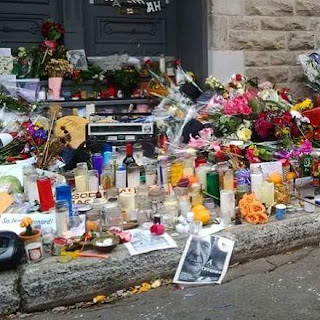


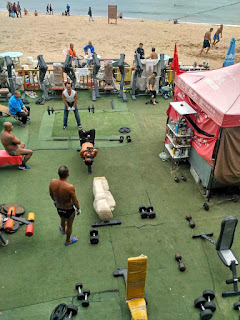


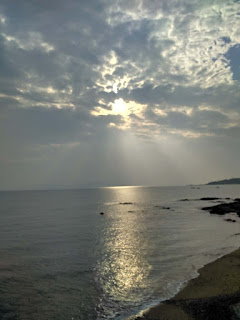














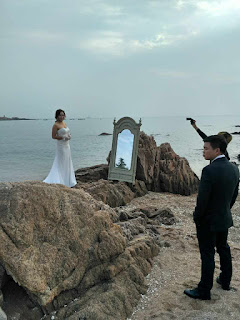

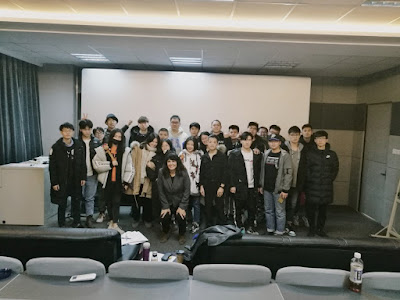
The photography of Huangdao Lu District of QingDao is compelling and mesmerizing. You are truly recording the past in the present. Would be interesting to see a grey scale version of the same photographs.
ReplyDeleteThanks for another great blog entry Jeanne. Touching tribute to Leonard. Keep including your photos. Your writing gives me a sense of what it is like to be immersed in a new culture. Love that term, Main Mascots! Isn't it cool that St. Laurent has a wiki entry??
ReplyDeleteThe heart & aura is my favorite picture. Shows how Chinese women are willing to pursue their dreams at all cost (last paragraph). Such tenacity inspires. Thanks, it was a delight to read! Your pictures make me want to visit that area even more.
ReplyDeleteHello Jeanne, I have been reading your blogs and I enjoyed reading them, you seem to be keeping your self very busy. It's already been a year since you left Montreal, how time flies.
ReplyDelete